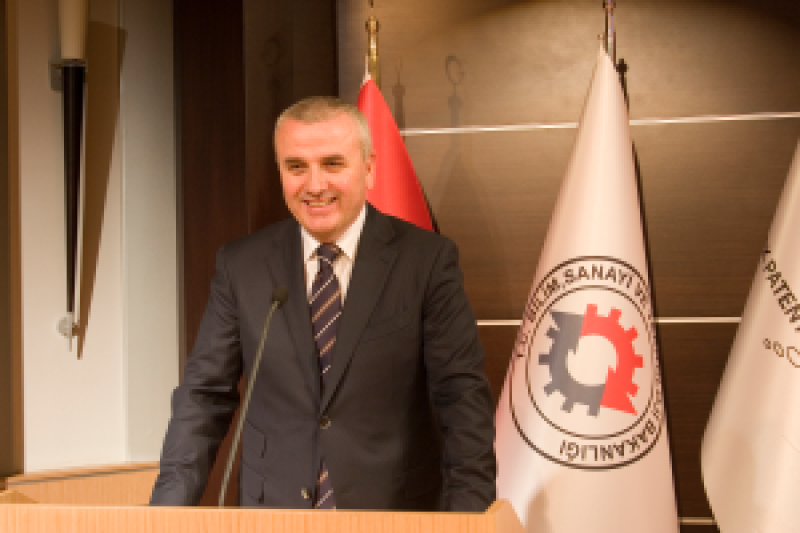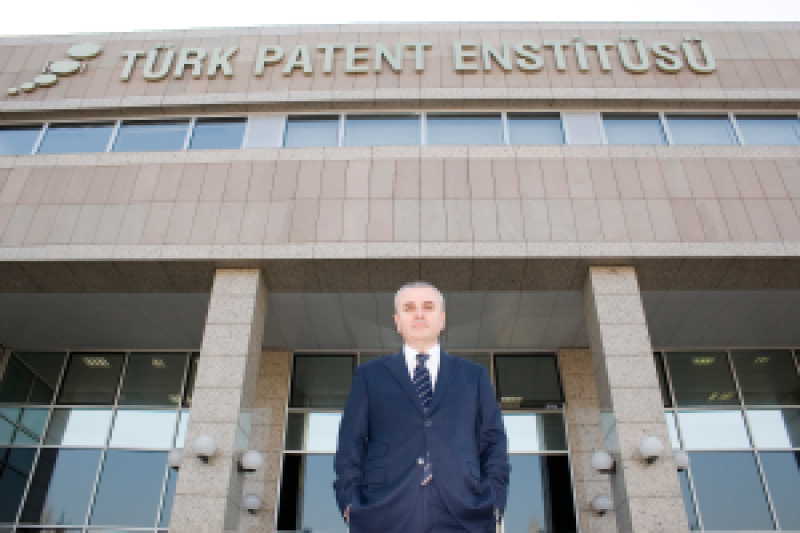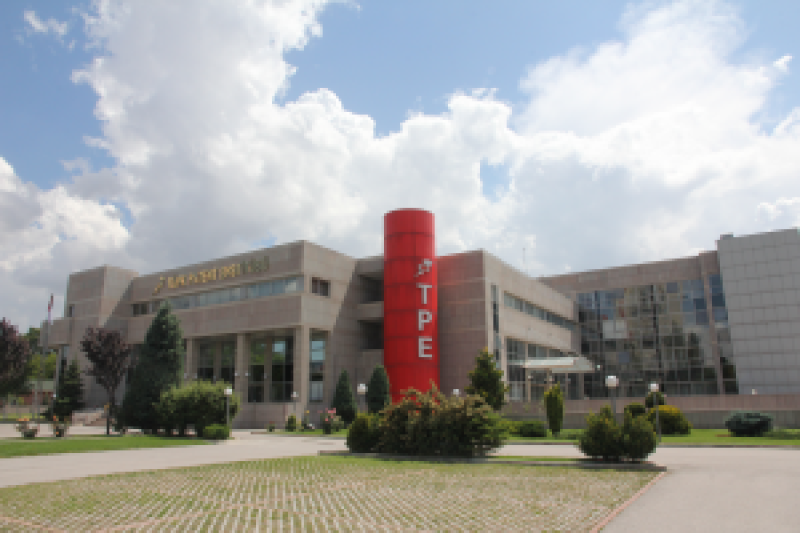You can read all the articles in our new Turkey Focus on the dedicated page (no subscription required).
Interview: Habip Asan, president, Turkish Patent Institute
What are the priorities for the Turkish Patent Institute at the moment?

Firstly, the work for the preparation of a new Draft Law, which has been prepared recently in order to meet some specific needs, has been relaunched in 2016. In 2015 the Turkish Patent Institute (TPI) has continued to undertake capacity-enhancing activities in a rigorous manner in various fields and subjects in order to implement the legislation properly and contribute to the enforcement of the related rights.
In the legislative sphere, hard work has been carried out such that under the supervision of TPI, as already mentioned, a new draft law has been prepared in consultation with relevant governmental and nongovernmental organizations/institutions. It will, inter alia, heighten the level of enforcement when it comes into force.
The TPI has been constantly improving its human resources, IT infrastructure and physical infrastructure within its budget and in line with its organisational strategic plan in order to improve its services in 2015.
All the endeavours highlighted here aim towards proper implementation of the law which is already in line with and even above in some respects the international commitments.
Secondly, we attach great importance to the cooperation activities with international agencies. At the top of the list comes the Project on Dissemination of Industrial Property Knowledge in Universities run in cooperation between the European Patent Office, Office for Harmonization in the Internal Market and Turkish Patent Institute. The Project aims at increasing the inclusiveness of universities in the creation of high added value patents and facilitates commercialisation of patents.
What changes do you expect in the future?
We, as the TPI, aim at a Turkey where annually 50,000 patent applications are filed. Similarly, our nation’s 2023 objectives include the creation of 10 global brands.
The National Intellectual Property Strategy Paper and Action Plan, which was prepared under the coordination of the TPI, has entered into force in July 2015. With the Action Plan, it is aimed to create an IP system that is efficient, wide and publicly accepted in order to increase the contribution of intellectual rights and products under those rights to the development process.
The four main objectives listed in the action plan, which clearly outlines the current situation of intellectual rights in our country, are as follows:
• Efficient implementation of IP rights by optimising legislation and implementation in line with the country’s needs.
• Supervision and protection of the intellectual rights in an efficient manner by creating human and corporate capacity in relevant units primarily such as justice, Customs and security services.
• Increasing the efficiency of the mechanism for the commercialization of intellectual rights by developing market perception and infrastructure for converting to values.
• Providing contribution for the objective of being a society having respect to ideas and knowledge by increasing social awareness in the field of intellectual rights.
The implementation of the Plan is based on efficient coordination among stakeholders. Looking at the industrial property objectives in the plan, it is aimed at reaching 16,000 domestic patent applications by 2018, which is around 5,000; reaching a percentage of 55% domestic patent applications, which is currently 37%, reaching 2,140 international and regional patent applications originating from Turkey, which is currently around 1,000; reaching 167 Turkish triadic patent applications, which is currently in the margin of 30-40.
Furthermore, Turkey is foreseen to be within the top 10 in domestic patent applications by 2018, whereas the country was listed as 14th in the 2013 WIPO annual statistical report. Additionally, the percentage of granted patents among total number of applications is aimed at 30% by 2018, which is currently 20%.
What are the main areas of work of the Institute? And which areas are growing?

The industrial property activities in Turkey dating back to 1871 continue to be implemented by the TPI since its establishment in 1994. The Institute’s facilities converge at the objectives of supporting Turkey’s technological advancement, establishing free competition climate in the country, protecting industrial property rights through registration for supporting the development of research and development activities, dissemination of industrial property rights-related domestic and foreign knowledge and documentation to public. It administers work and procedures related to protection of industrial property rights comprising patents, industrial designs, trade marks, geographical indications and topographies of integrated circuits. It is an administratively and financially autonomous institution under the Ministry of Science, Industry and Technology.
Considerable progress has been made in preparing search and examination reports for patent applications in Turkey. Consequently, positive results have been obtained in shortening the registration period and reducing the institutional costs.
While the ratio of search reports issued by the TPI to the total number of reports has been only 8% in 2009, by the end of 2014, TPI has reached the capacity to issue 45% of the search reports. Similarly, 1629 reports issued in 2014 reflect this capacity increase as 10 times compared to the five years earlier figures. By the end of 2015, TPI has achieved its full capacity to perform search and examination on its own for all patent applications. Additionally, we aim to provide search and examination services to other national offices, starting with Bosnia and Herzegovina. It is quite clear that our efforts in increasing the search and examination capacity would become an important element in contributing to the development of our country.
What is the Institute’s role in developing IP policy in Turkey?
The very purpose of the establishment of the Institute is regulated by the Law establishing the TPI. It is, inter alia, to contribute to the technological development of Turkey through contributing to R&D activities in Turkey, not only by securing industrial property rights but also maintaining dissemination and spreading of industrial property-related knowledge and information. In this regard, the TPI with its given task has an important role in the national innovation system of Turkey. We not only process applications and grant rights but also disseminate knowledge and information. It is indeed a very critically important task. Timely publication of industrial property rights is realising this function of dissemination in the first place. In addition to this, I always strive for increasing the level of awareness on industrial property rights in Turkey which I believe is still not at a desired level. To do this, one of the departments at the Institute has been fully given the task of organising seminars, training, workshops in almost every part of Turkey throughout the year. They work really hard to increase the visibility of the Institute, thus, mainly maintain and assist constantly use and management of the knowledge and information contained in industrial property rights for the stakeholders.
Furthermore, the higher education institutions in Turkey have launched IP-related programmes recently covering various aspects of IP rights. We have been doing our best to contribute to the programmes and assist them in their endeavours. We will also start our own IP Academy at the Institute in cooperation with WIPO this year for the benefit of not only our examiners but also for IP agents/attorneys. They are all, I believe, huge contributions to the innovation system in Turkey.
Lastly, I would mention the Patent Awards ceremony which we organise with the participation of the President of Turkey. Such events, surely, are the best publicity for the recognition and encouragement of use of IP rights. Many private firms and individuals compete to be selected and awarded as one of the most innovative firms in Turkey.
What is its role in developing innovation and in particular technology transfer?
We need qualified inventions, distinctive and high added value designs, strong global brands, and geographical indications to commercialise our local values.
Our most important topical working area on industrial property is the commercialization of inventions. In this regard, the web site Technology Transfer Platform launched in February 2015 serves as a great tool that matches the inventors and investors.
In line with the actions related to commercialisation of industrial rights in the National Intellectual Property Strategy Paper, studies towards “establishment of a market system where intellectual property rights can be valuated, purchased and sold as a commercial asset” have been launched under the Objective on “Developing market perception and value conversion infrastructure and increasing the efficiency of the mechanisms for commercialization of intellectual rights”. The said action is coordinated by the Borsa Istanbul. In this context, the work to establish an “Intellectual Property Market” as part of the Special Market activities launched in 2014 is still underway.
I understand there have been some recent initiatives to promote technology transfer. Can you explain more about these?

In addition, one of the important achievements in the international fora is the decision of establishing a Technology Bank in Turkey taken in 2011 at the Fourth Conference on United Nations Least Developed Countries in Istanbul. In this regard, technical studies of the UN Secretariat General led by Ban Ki-moon have almost been finalised concerning the technology bank’s scope, functions, organisational structure and its link to the United Nations. One of the solid achievements we expect out of the Least Developed Countries Action Plan Interim Review meeting that we will host in Antalya in June 2016 would be the concretisation of the technology bank. Therefore, by the time of the said meeting, it is aimed to finalise the draft agreement of the host country and to identify the overall framework of the Technology Bank. Do you think IP awareness is increasing in Turkey? And if so how is this evident?
Trade marks are the most commonly filed forms of IP. Over the past five years, trade mark applications are more than 100,000 in number. In 2015, the number of trade mark applications was 110,679.
If we consider the past 10 years the number of patent applications has increased from 935 (year 2005) to 5512 (year 2015). In years 2011,2012,2014,2015 the rate of increase in patent applications was 25 %, 11 %, 7 % and 13 % respectively. However, only in 2013 the number of patent applications has decreased very slightly, which is at a rate of only 0.33 %.
According to “World Intellectual Property Indicators’’ published by WIPO in December 2015, Turkey is in 24th place in terms of patent applications (abroad and domestic), in seventh place in terms of utility model applications, and in 15th place in terms of national patent applications in the world.
What do you like about working in IP in Turkey? And what are the biggest challenges?
I give an utmost importance to work “as a team” in the Office. Today, all of us know that collective wisdom always dominate personal one, even if it is a genius one. Therefore, in TPI, we are trying to hire new experts having good educational backgrounds and personal skills and to equip them with adequate training. Of course, usage of technological means is vital for reaching success. Furthermore, cooperation and coordination with other relevant governmental or private institutions is indispensable for reaching our goals. Therefore, my Office is always seeking to find ways to actuate all relevant stakeholders into a harmonised direction, so that we believe the success will be the natural result. But to sum up, I have to stress that, acting as a team within the Office and within the country is the key factor for overcoming challenges and reaching success.
For TPI, 2015 was a year of success. Last year, our heavy agenda has contained remarkable international events, achievements and start-ups, which will, I assume, enhance Turkey’s IP structure and skyrocket its place at the international arena within the coming years.
For the year ahead, I am hoping that there will be no drastic easement in our agenda. I am sure that the TPI will continue to manage all of these existing projects with success, in addition to newly added ones.









